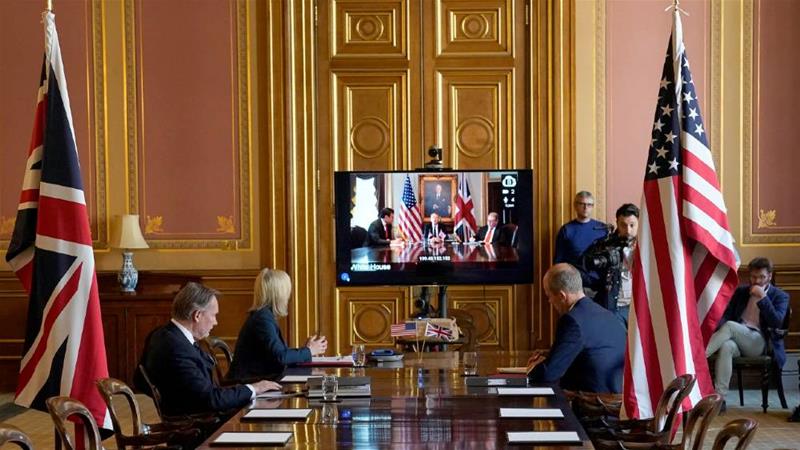A push for a trade deal between the United Kingdom and the United States has been on the cards since Brexiteers made a convincing enough argument that membership in the European Union was holding the UK back from more profitable deals with potential trading partners around the world.
Nearly four years after a slim majority of Britons voted to depart the EU, the talks finally began - albeit by videoconference due to the near-global lockdown imposed to curb the spread of the coronavirus pandemic - on Tuesday.
It is a busy time in London's trade circles, as the UK is simultaneously attempting to negotiate a deal with the EU, with a firm - and self-imposed - deadline of the end of the year for completion.
And even if coronavirus and an EU deal weren't enough of a distraction, there are still significant obstacles to be surmounted in a potential UK-US agreement, say analysts.
"As such, this is about politics more than economic gains, which are likely to be minimal and may even be negative if a deal makes UK-EU trade harder. Reaching an agreement is not a certainty - UK sensitivities on US food and the [National Health Service] will be a problem, and if Trump loses the presidential election in November, we don't know what a Biden presidency's priorities would be."
The UK's Department for International Trade says its analysis shows a deal with the US would provide benefits across the country, with the greatest windfalls coming to Scotland, the northeast and the Midlands, while also including a dedicated chapter to help the UK's 5.9 million small businesses.
"Increasing transatlantic trade can help our economies bounce back from the economic challenge posed by coronavirus," UK International Trade Secretary Liz Truss said in a statement.
But it could be years before the details are finally hashed out. At the starting point in talks, the US wants full access to UK markets for its agricultural products, and minimal tariffs on the goods it wants to export to the UK, according to trade objectives published by Washington's negotiators more than a year ago.
That could pose a problem - there is strong British opposition to US genetically modified crops and antibacterial treatments for poultry - "chlorinated chicken", as it is described in UK media. Prime Minister Boris Johnson has promised to drive a "hard bargain", and Truss has said that the UK would not reduce its food safety standards.

